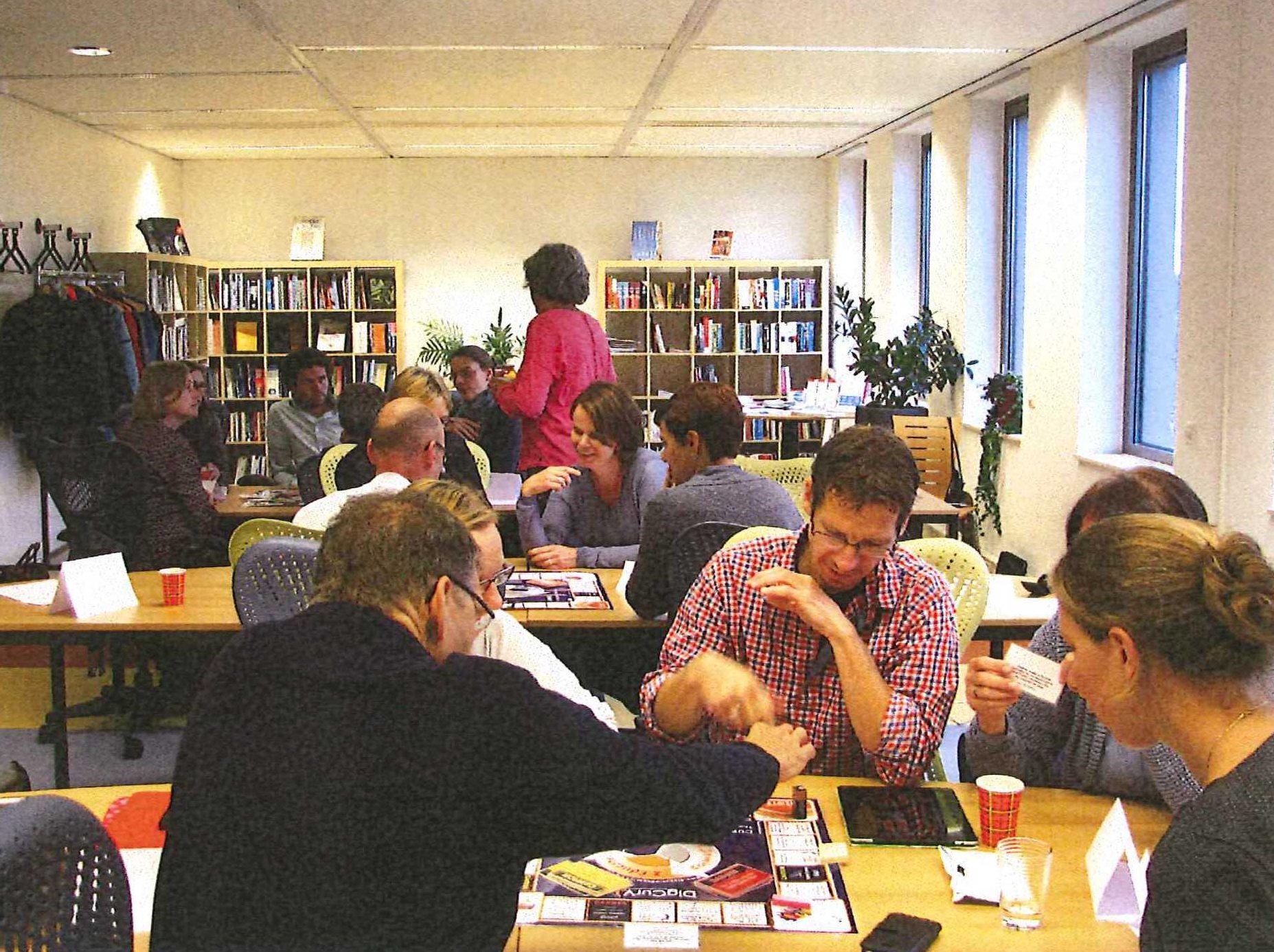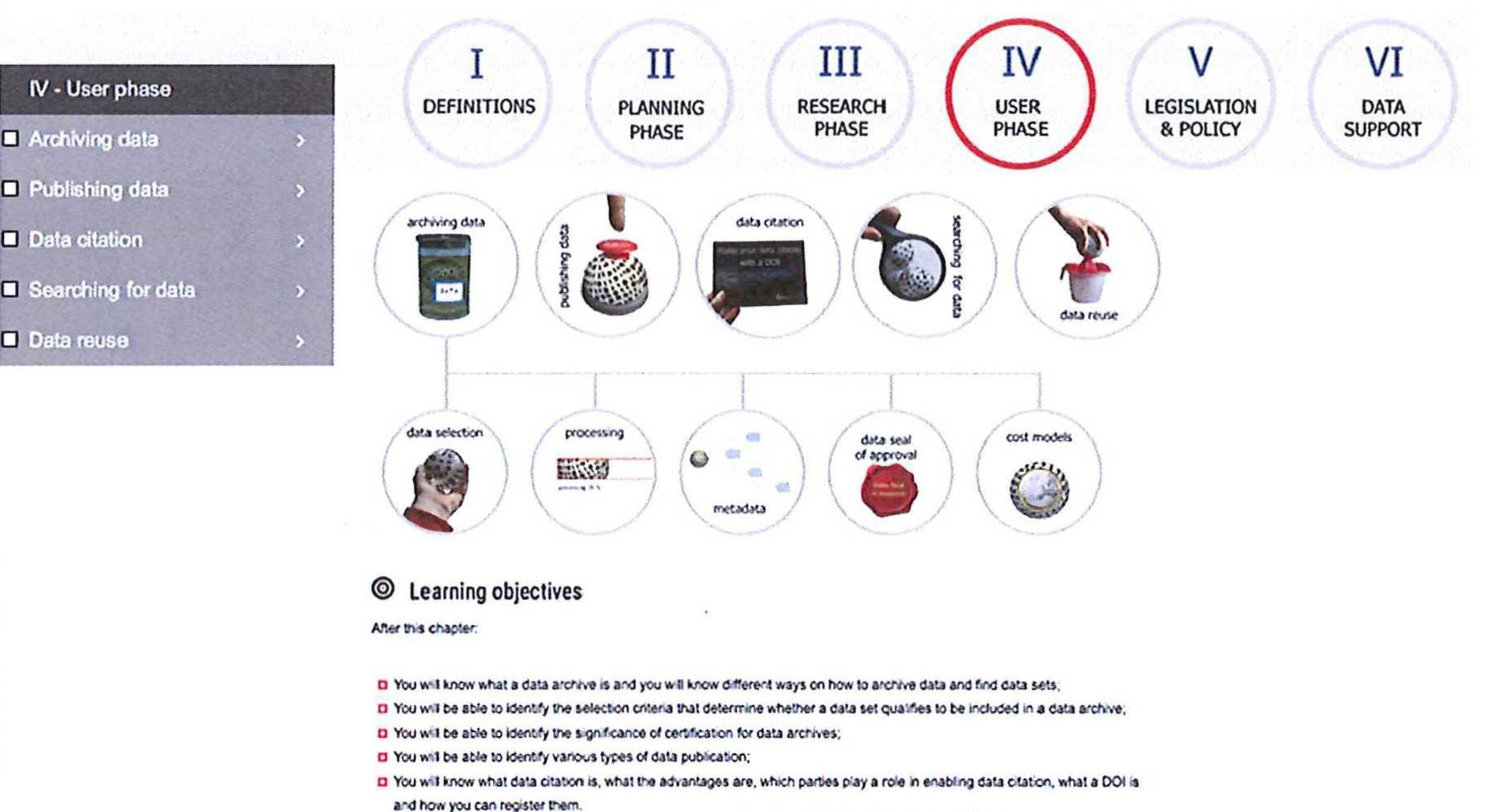"Newton stood on the shoulders of giants. Today's researchers and scientists can use terabytes of research data to advance science and meet societal challenges. However, whether one is able to reuse research data in an effective and efficient way will increasingly depend on whether the data has been properly managed and shared with appropriate metadata and documentation." (From the OpenAIRE Research Data Management briefing paper (February 2016, co-authored by one of the coaches of the Essentials 4 Data Support training)). For many participants in the Essentials 4 Data Support (Essentials) training the challenge lies exactly here: as research support staff, they know about the global data ambitions, but they are still lacking in knowledge and skills to support "their" researchers in storing, managing, archiving and sharing research data properly. Here Essentials aims to support the supporters, by contributing to their professional knowledge and network.
The training, initiated in 2011 and revised in 2014, is the flagship of Research Data Netherlands (RDNL). RDNL is a coalition in the field of long-term research data archiving, consisting of 4TU.Centre for Research Data, Data Archiving and Networked Services (DANS) and SURFsara. RDNL's training Essentials results from a clear need for professional data management support training. Essentials is one of the few courses on RDM that explicitly focus on data supporters, and not on researchers. We have trained over 170 data supporters, working in research libraries, IT departments, medical centres and elsewhere; another 80 persons have signed up for self-study. As front office staff they play an essential role in research data advocacy and support for gradually realising the international Open Science ambitions.
Since the first training in 2011 the course materials are publicly available at the website, both in English and in Dutch. The current offering consists of three variants:
- The full — blended — course consists of two face-to-face days, with experts and coaches. In the six weeks between the first and the second day students familiarise themselves with the content of the online learning environment, do assignments, and give feedback on the assignments of their fellow students. Students pay a fee for the full course.
- In the Online+ course, registered students have access to the online course materials. They are not entitled to coaching, but are welcome to contribute to discussions in the open forum.
- Online-Only students can take the course at their own pace, without access to social features.
The following competencies were defined to be essential: to handle ICT skilfully (including digitally born data); to show entrepreneurship (be proactive, have an eye for data trends); to acknowledge the significance of the data life cycle; be co-operative (consulting skills, know the other stakeholders in data management).
The coaches have a wide network of experts from digital preservation networks, national research funding organisations or research organisations, either as an active researcher or as senior data supporter themselves. The experts are invited to give a presentation on their daily work. The participants appreciate these presentations very much; their questions feed into the subsequent assignments. Data management planning is a standard topic on the first day, to prepare the participants for their first assignment, viz. to write a data management plan.
An important part of Essentials is communication among the participants and with the coaches, because strengthening the participants' professional network is an explicit goal of the blended training. Participants have to upload their assignments to a private group forum and must give feedback on the work of their fellow students. The coaches use the group forum too for their feedback on the weekly assignments and to answer questions.

Face-to-Face day 1. Playing the Digital Curator Game, see http://digcur-education.org/ene/Resources/CURATE-Game
The second face-to-face day again contains expert lectures, but substantial time is reserved for student presentations. One of the assignments, spanning the full six weeks, is to follow recent developments in an RDM area close to one's learning goals and to share findings with the group. Another assignment concerns planning how to bring RDM, including digital preservation, to the fore in one's organisation.
The Essentials website is very highly rated by the students and draws attention by the many images and videos with brief talks by researchers and 'how to' videos about data management planning, data sharing concerns, reproducible research, data citation and persistent identifiers. Each chapter finishes with a quiz, which allows for a quick recapitulation of the chapter's contents.
The research cycle is the leading concept. This can be seen at the top of the figure below, where the planning phase precedes the research phase and the phase in which researchers make their data available for reuse:

An overview of an Essentials Chapter on the website
Each chapter starts with an outline of the sections and learning objectives of that particular chapter. In addition to RDNL's own content (available under a CC-BY-SA licence) all chapters contain many external links to good practices, definitions, and reading materials provided by other organisations. This makes the site a valuable work of reference — the video clip about data management planning has been viewed almost 4000 times. The assignments and quizzes (not visible here) are only accessible to participants in the full course. The private forum is part of the website and remains accessible afterwards for future knowledge sharing.
New in the portfolio is the in-house training. In 2015 a training was designed for the University of Applied Sciences Utrecht and in 2016 for the Danish Forum for Data Management. In each case the customer provided information about the training needs of the group and wishes regarding the duration and intensity of the training, e.g. with or without assignments ahead of the training day(s). On that basis the coaches designed an agenda in which they included the relevant parts from the regular face-to-face training, or suggested to develop new modules. Core elements in the in-house trainings are the assignments "Writing a DMP" and "Who are my stakeholders?".
Find out more:
- The course: http://www.researchdata.nl/en/
- Research Data Netherlands: http://www.researchdata.nl/en






























































































































